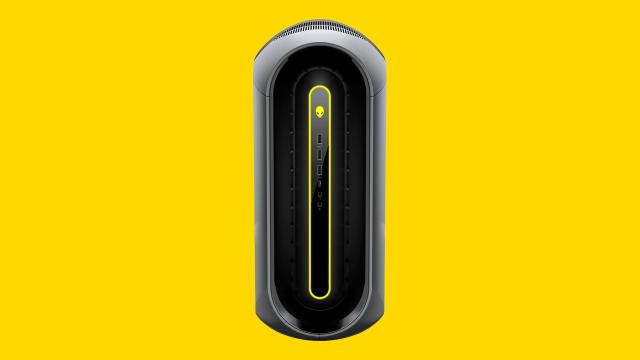Tired: Not being able to buy a gaming PC because parts are unavailable or overpriced. Wired: Not being able to buy gaming PCs because your state government thinks it uses too much power.
The ban has impacted sales of Dell Alienware gaming desktop PCs — specifically the Aurora R10 and R12 so far — in several US states. Australians won’t have any issue buying the R10 and R12 pre-built systems, but for those living in California, Oregon, Vermont, Washington, Hawaii or Colorado, new state laws around power efficiency means they won’t be able to buy the PCs at all.
“This product cannot be shipped to the states of California, Colorado, Hawaii, Oregon, Vermont or Washington due to power consumption regulations adopted by those states,” Dell’s website says to affected customers, according to The Register.
Dell further confirmed that the ban on sales was directly related to a new “mandatory energy efficiency standard” affecting not just desktop gaming rigs, but all desktops, laptops and AIOs.
“This was driven by the California Energy Commission (CEC) Tier 2 implementation that defined a mandatory energy efficiency standard for PCs – including desktops, AIOs and mobile gaming systems. This was put into effect on July 1, 2021. Select configurations of the Alienware Aurora R10 and R12 were the only impacted systems across Dell and Alienware,” Dell told The Register.
It’s not just PCs that are impacted, though. From December 9, the new energy commission laws will require high-refresh rate gaming monitors and multi-screen notebooks to meet certain energy standards as well. (Interestingly, the legislation only defines gaming monitors with more than 300Hz refresh rate as a ‘fast refresh rate gaming monitor’.)
Here’s a quick table of some of the energy standards PCs are expected to meet:

If you want to get really technical, you can dig into the full Title 20 legislation here. The long and short of it is that gaming PCs can still be sold in those states, but if they’re manufactured after July 1 this year, they’re required to achieve certain power efficiency targets when idle for short periods, long periods, when sleeping and when fully turned off. How much power is acceptable depends on precisely what’s in the system.
As Gizmodo explains, next-gen consoles aren’t part of these new regulations. There’s also an exemption for “very high performance monitors” — although that only covers 27-inch screens with 4K resolutions or higher, so any new 1440p/240Hz gaming screens will have power consumption and brightness requirements:

I wouldn’t be surprised if we see manufacturers optimise or do more work on idle power usage as a result, since we’re certainly not expecting GPUs or CPUs to use less power any time soon. But as regulators become more active on combating climate change usage via lots of different means, it wouldn’t be surprising to see other countries implement their own, stricter power efficiency requirements.

Leave a Reply